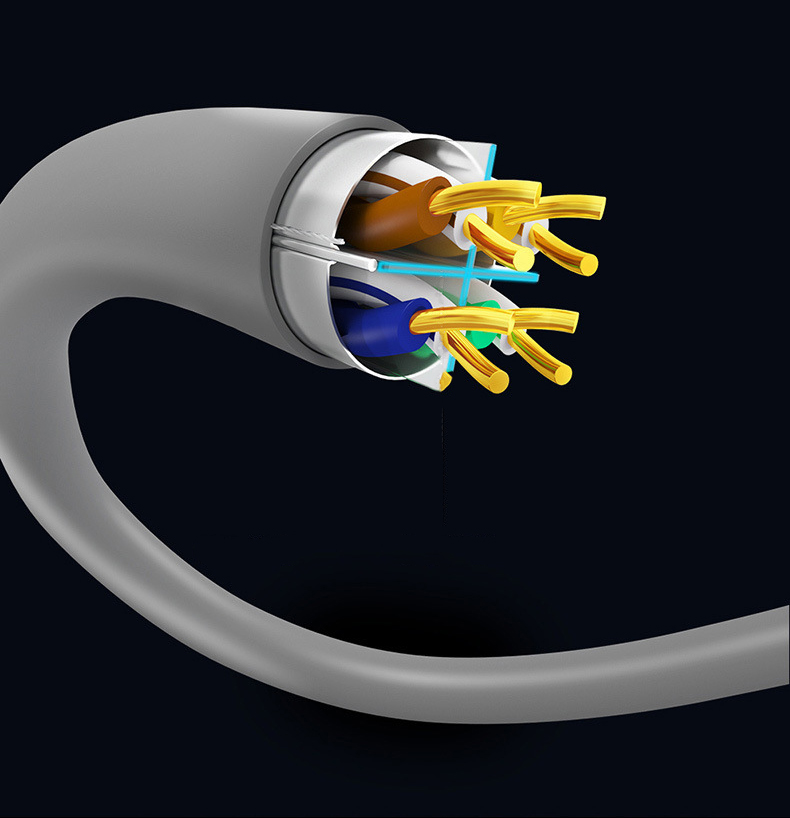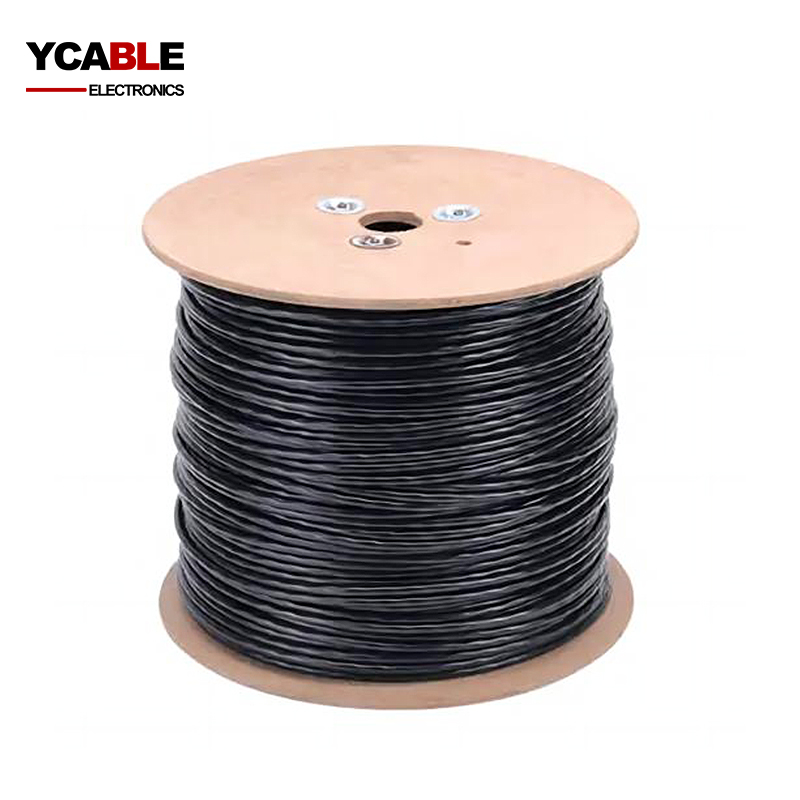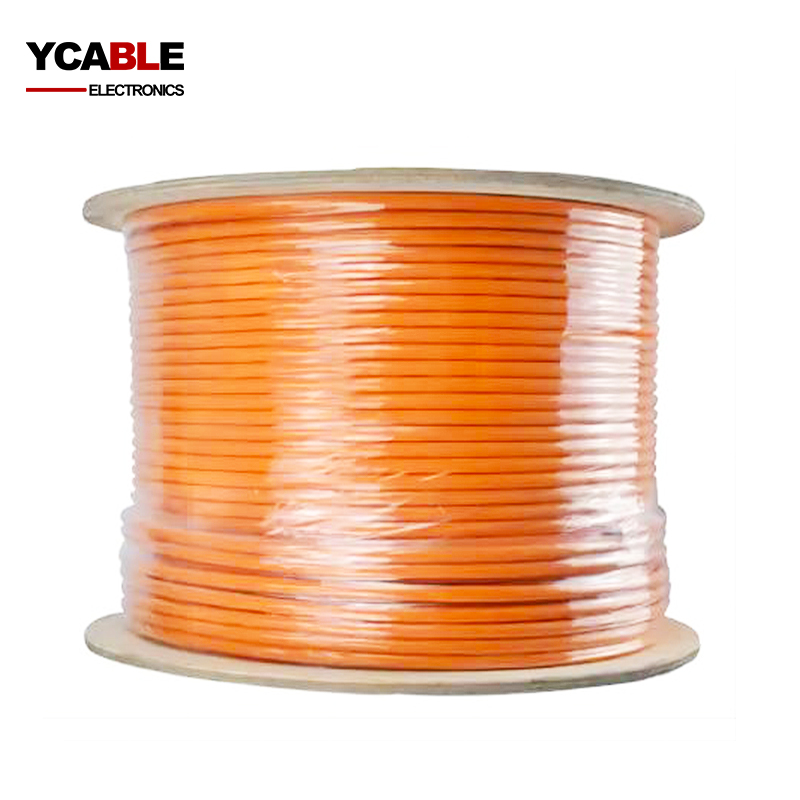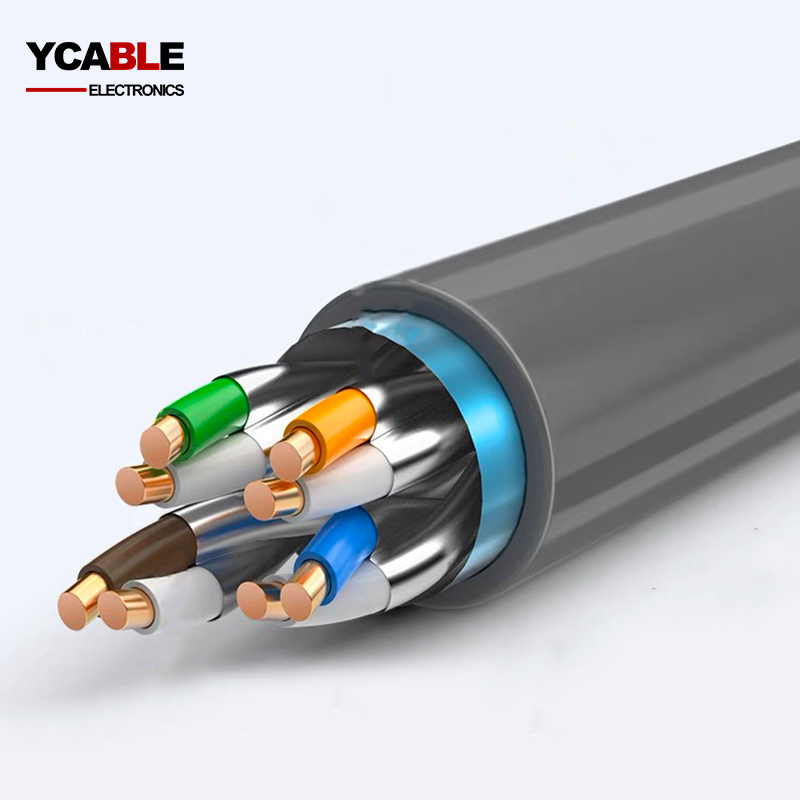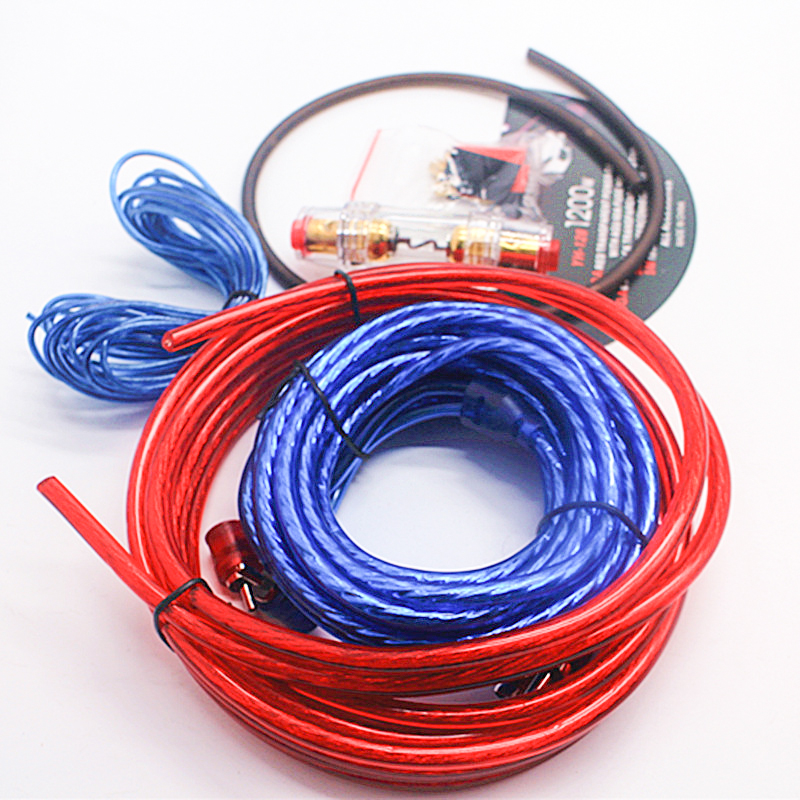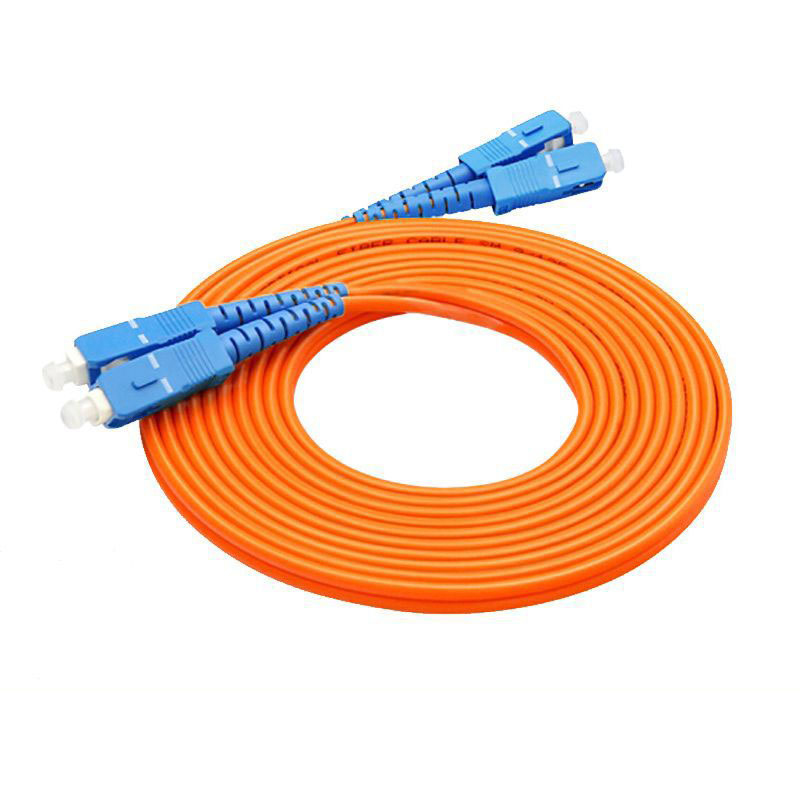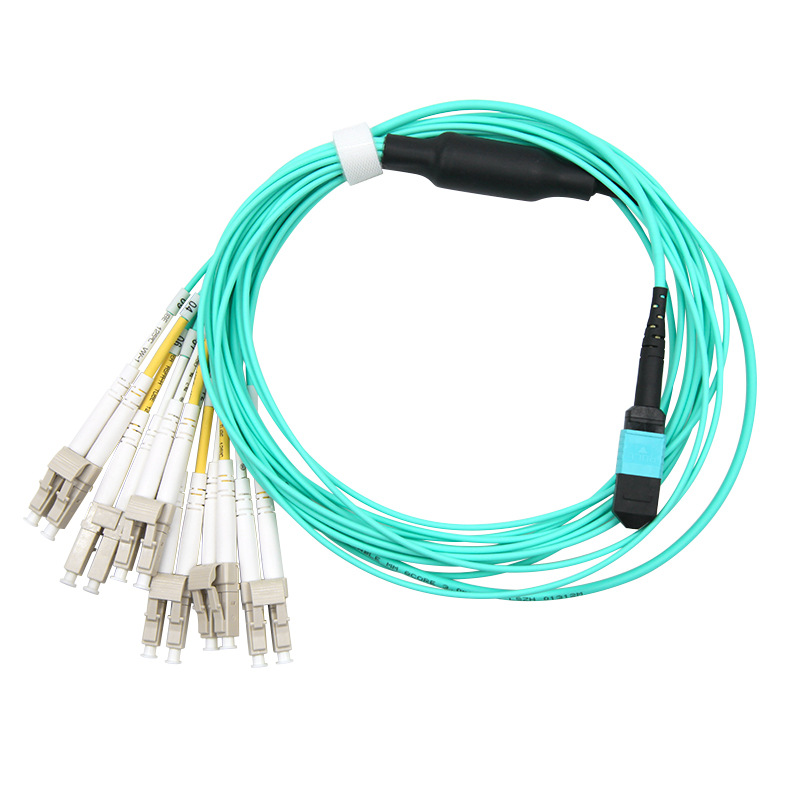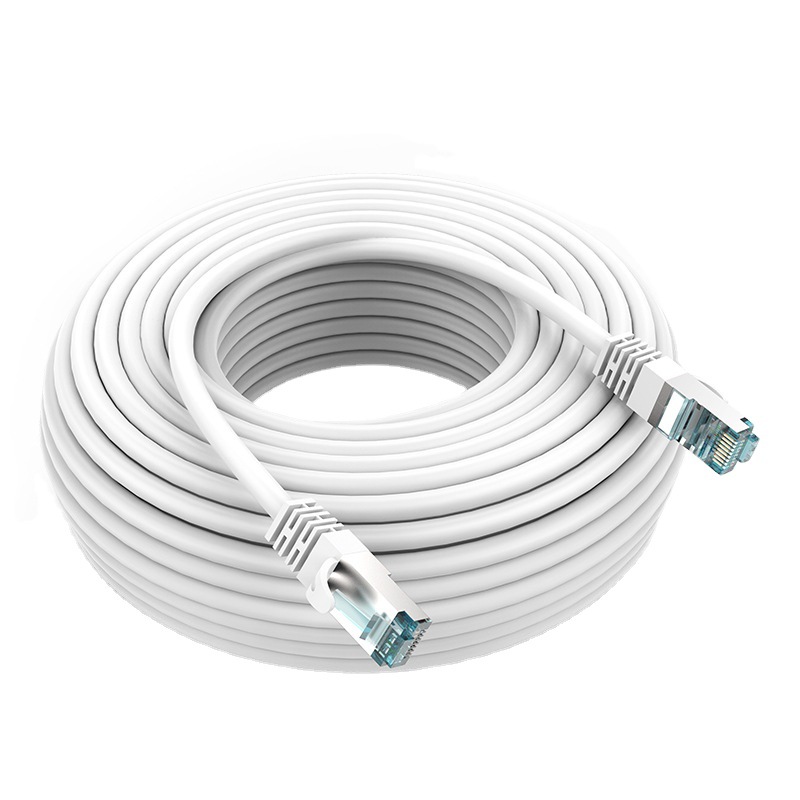CAT6A wire FTP LAN cable
CAT6A wire FTP LAN cable
Item Number:Cat6A FTP
- Model: CAT6A FTP LAN CABLE
- Size: 23AWG Solid/Stranded
- Color: White/Blue/Black/Gray/Custom
- Insulation: PE/HDPE/Custom
- Shield: Polyester/Aluminum Foil shield
- Jacket: PVC/LSOH/Custom
- Packing: 305M(1000FT)/CTN/Custom
- OD: 7.5mm/Custom
- Conductor Material: Bare Copper or CCA
- Drain wire: Tinned Copper
Environmental Specifications:
Environmental Space – Non-plenum
Flame Test Method – CMR
Installation Temperature – 0 °C to +60 °C (+32 °F to +140 °F)
Operating Temperature – -20 °C to +60 °C (-4 °F to +140 °F)
General Specifications:
Cable Type
FTP (shielded)
Pairs, quantity
4
Cable Component Type
Horizontal
Conductor Gauge, singles
23AWG
Conductor Type, singles
Solid/Stranded
Characteristics:
- Performance up to 550 MHz, CAT6 is only 250 MHz.Suitable for 10GBASE-T, CAT6A can support up to 100 meters when transmitting 10Gbps.
- Enhanced protection against crosstalk and system noise.
- There are many brands sold on the market, so everyone must choose a large brand to ensure the quality of the network cable.
- With aluminum foil shielding and drain wire, it has a stronger anti-interference ability.
- Transmission rate: 1000Mbps
- Suitable for indoor applications
In general, CAT6A FTP has stronger shielding capabilities, higher transmission rates, and greater flexibility than CAT6A UTP.
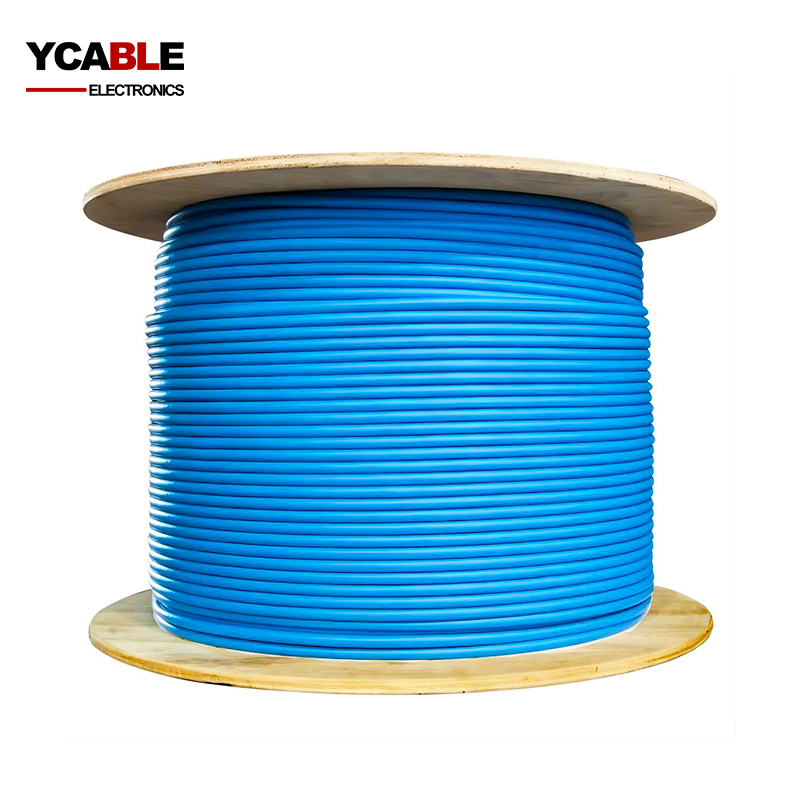

Categories
Category 6A F/UTP Cable
| Electrical Specifications | |
| ANSI/TIA Category | 6A |
| dc Resistance Unbalance, maximum | 4 % |
| dc Resistance, maximum | 7.61 ohms/100 m |
| Mutual Capacitance | 6.0 nF/100 m @ 1 kHz |
| Nominal Velocity of Propagation (NVP) | 65 % |
| Operating Frequency, maximum | 550 MHz |
| Operating Voltage, maximum | 80 V |
| Transmission Standards | ANSI/TIA-568-C.2 ISO/IEC 11801 Class EA |
| Dielectric Strength, minimum | 1500 Vac 2500 Vdc |
Description
What is CAT6A FTP?
CAT6A F/UTP designates a type of Ethernet cable composed of four unshielded twisted pairs, yet it includes an outer foil shield, categorizing it as a shielded cable. In the realm of shielded cables, there's also the S/FTP (screened/foiled twisted pair) variant, characterized by individually shielded pairs and an encompassing outer screen braid around all four pairs. The structure of CAT6A F/UTP mirrors this, but with a distinctive outer foil shield beneath its external jacket.
The function of this foil shield in the cat6a ftp cable is crucial – it acts as a protective barrier, thwarting electromagnetic interference (EMI) and radio frequency interference (RFI) from adjacent cables that could otherwise disrupt the twisted pairs. This shielding effectively counters noise and interference from common EMI sources like lights and machinery, as well as RFI from mobile phones and wireless access points. Additionally, it plays a vital role in containing data signals within the cable, preventing them from leaking.
Designed for high performance, this cat6a ftp cable is ideally suited for applications demanding 10GS speeds. It boasts a PVC jacket and is CM rated, reflecting its quality and compliance with safety standards. The cable's construction includes an aluminum foil with a drain wire, exceeding industry standards set by TIA/EIA-568.B.2 and ISO/IEC 11801. It's also RoHS compliant, aligning with environmental safety regulations.
For installations that incorporate shielded F/UTP CAT6A cable, it's imperative to use corresponding shielded connectors to maintain the shielding's effectiveness. Conversely, unshielded cables should be matched with unshielded connectors. As a cat6a ftp manufacturer, YCABLE ELECTRONICS highlights the importance of using compatible connectors to ensure the integrity and optimal performance of the network installation.
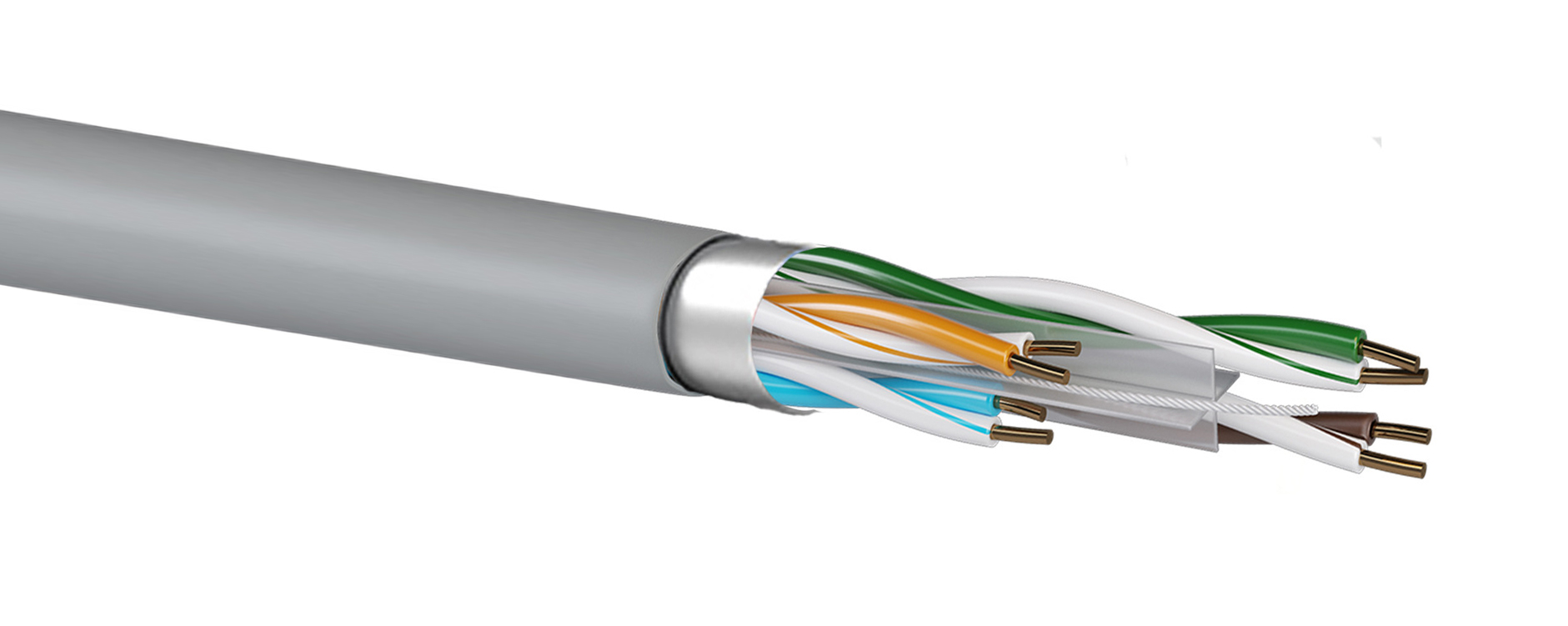
| Product Construction | |||||
| Conductor | Material | Pure copper | |||
| AWG | 23 | ||||
| Diameter(mm) | 0.575 | ||||
| Insulation | Material | Foam PE | |||
| Average Thickness(mm) | 0.29 | ||||
| Minimum Thickness(mm) | 0.25 | ||||
| Diameter(mm) | 1.15 | ||||
| pair Twist Diameter(mm) | 2.30 | ||||
| Separator (mm) | w=5.5,h=0.5 | ||||
| PEL(mm) | w=24,h=0.015 | ||||
| Cable Diameter(mm) | 6.50 | ||||
| Aluminum Foil(mm) | w=25,h=0.07 | ||||
| Rip-cord | 1*3D | ||||
| Jacket | Material 材料 | LSZH | |||
| Average Thickness(mm) | 0.58 | ||||
| Minimum Thickness(mm) | 0.53 | ||||
| Diameter(mm) | 7.80 | ||||
| Color | |||||
| Insulation Wire | Blue*White/Blue | Orange*White/Orange | |||
| Green*White/Green | Brown*White/Brown | ||||
| Jacket | According to the customer's requirement | ||||
CAT6A FTP Electrical Characteristic
| Electrical Characteristic | ||||||
| Impedance Ω | Propagation Delay Skew ns/100m | Capacitance Unbalance | Conductor Resistance@20℃ Ω/km | Unbalance Resistance % | ||
| 100±15 | <=45 | <=330 | <=9.5 | <=5 | ||
| Frequency MHZ | Return Loss >=dB | Attenuation <=dB/100m | Next >=dB/100m | PS Next >=dB/100m | Elfext >=dB/100m | PS Elfext >=dB/100m |
| 1 | 20.00 | 2.08 | 78.00 | 75.0 | 78.0 | 75.0 |
| 4 | 23.01 | 3.75 | 78.00 | 75.0 | 78.0 | 75.0 |
| 8 | 24.52 | 5.22 | 78.00 | 75.0 | 77.2 | 74.2 |
| 10 | 25.00 | 5.82 | 78.00 | 75.0 | 75.3 | 72.3 |
| 16 | 25.00 | 7.34 | 78.00 | 75.0 | 71.2 | 68.2 |
| 20 | 25.00 | 8.21 | 78.00 | 75.0 | 69.3 | 66.3 |
| 25 | 24.32 | 9.18 | 78.00 | 75.0 | 67.3 | 64.3 |
| 31.25 | 23.64 | 10.26 | 78.00 | 75.0 | 65.4 | 62.4 |
| 50 | 22.21 | 13.01 | 78.00 | 75.0 | 61.3 | 58.3 |
| 62.5 | 21.54 | 14.57 | 78.00 | 75.0 | 59.4 | 56.4 |
| 100 | 20.11 | 15.82 | 75.40 | 72.40 | 55.3 | 52.3 |
| 125 | 19.43 | 20.77 | 73.90 | 71.0 | 53.4 | 50.4 |
| 200 | 18.00 | 26.47 | 70.90 | 67.9 | 49.3 | 46.3 |
| 250 | 17.32 | 29.73 | 69.40 | 66.4 | 47.3 | 44.3 |
| 300 | 17.32 | 32.69 | 68.20 | 65.2 | 45.8 | 42.8 |
| 350 | 17.32 | 35.44 | 67.20 | 64.2 | 44.4 | 41.4 |
| 400 | 17.32 | 38.01 | 66.40 | 63.4 | 43.3 | 40.3 |
| 500 | 17.32 | 42.76 | 64.90 | 61.9 | 41.3 | 38.3 |
CAT6A FTP Mechanical Characteristic
| Mechanical Characteristic | Product Standard | ||||||
| Testing Object | Jacket Material | Rated Temperature(℃) | 90 | ||||
| Testing Material | LSZH | YD/T1019-2001 | Meet | ||||
| Aging Condition(℃*hrs) | 100*168 | UL/C(UL)/ETL | |||||
| Before Aging | Tensile Strength(Mpa) | >=10 | ANSI/EIA568C.2 | ||||
| Elongation(%) | >=125 | ISO/IEC 11801 | |||||
| After Aging | Tensile Strength(Mpa) | >=85% of unaged | Packaging | 305M/Box/Reel | |||
| Elongation(%) | >=50% of unaged | Printing | According to the customer's requirement | ||||
| Cold Bending(-20±2℃*4hrs) | No crack | ||||||
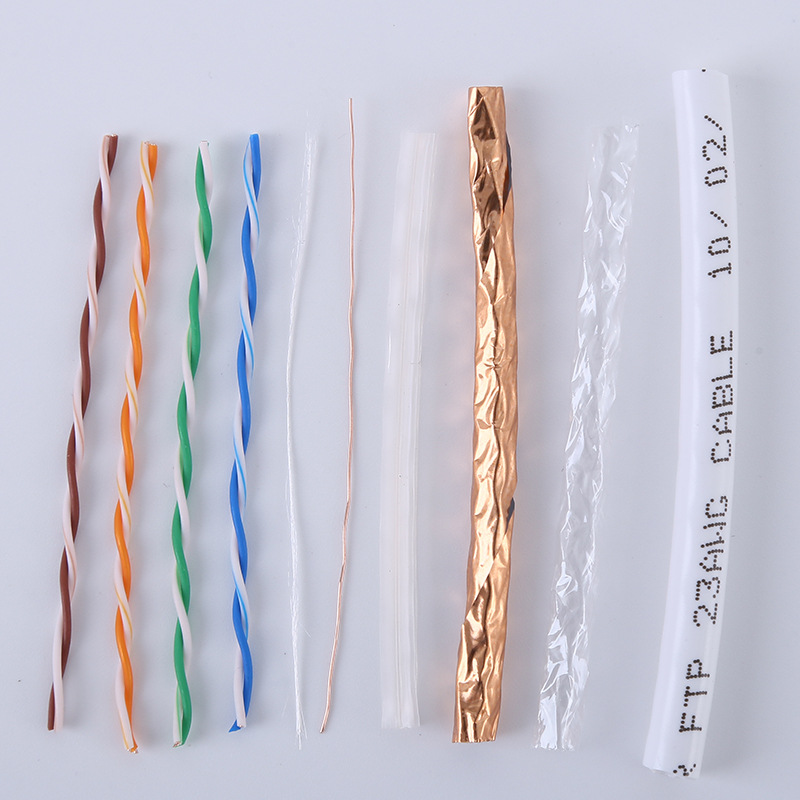
What is the difference between F/UTP and U/FTP in CAT6A cables?
Understanding the distinction between F/UTP and U/FTP cables, especially within the CAT6A FTP category, is crucial for selecting the right cable for specific networking needs. Their naming conventions are indeed similar, but they represent different structural designs.
- F/UTP – Foiled, Unshielded Twisted Pair The term F/UTP represents 'foiled, unshielded twisted pair'. In the context of CAT6A FTP cables, this means that inside the cable, each twisted pair is unshielded and separated by a divider. All four pairs are collectively encased in a metallic foil. This arrangement can be likened to four couples sharing one large partitioned room.
- U/FTP – Unshielded Foiled Twisted Pair U/FTP, on the other hand, stands for 'unshielded foiled twisted pair'. In CAT6A FTP cables of this type, each twisted pair is individually wrapped with a metal foil. This is akin to four couples each having their own private room during a vacation.
Advantages of U/FTP over F/UTP
The design differences between U/FTP and F/UTP cables lead to various advantages in the former:
- Enhanced Performance: U/FTP cables, when properly installed, offer superior crosstalk and EMI (Electromagnetic Interference) performance. Crosstalk refers to signal interference between adjacent twisted pairs.
- Simpler Termination and Installation: Due to their looser twist rate and absence of a cross divider, U/FTP cables are easier to terminate, simplifying installation. This feature is particularly beneficial for CAT6A U/FTP cable installations.
- Increased Flexibility and Easier Routing: U/FTP cables, devoid of a cross divider, can have a reduced diameter, leading to thinner cables. These thinner cables are more flexible and easier to maneuver. Additionally, the smaller diameter facilitates better airflow, potentially aiding in energy savings.
while F/UTP and U/FTP CAT6A FTP cables may sound similar, their structural differences have significant implications for performance, installation, and flexibility. Understanding these nuances is essential for making informed decisions, especially for a cat6a ftp manufacturer like YCABLE ELECTRONICS, committed to delivering optimal solutions for diverse network requirements.
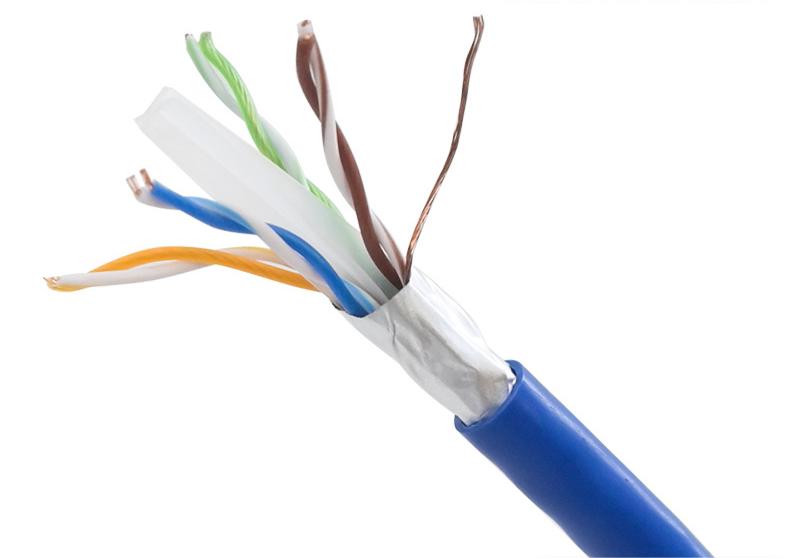
Is FTP better than UTP?
Each CAT6A FTP cable features a comprehensive foil tape shield around the assembly, enhancing its protection against EMI (Electromagnetic Interference) and crosstalk. Often, these cables are also known as F/UTP. When compared to UTP (Unshielded Twisted Pair) cables, CAT6A FTP cables boast higher bandwidth and greater resistance to interference. However, they are typically more expensive and offer somewhat reduced flexibility.
- Challenges in Installation The FTP (Foiled Twisted Pairs) cables, including the CAT6A FTP variant, possess a thicker outer jacket due to the additional internal aluminum foiling. This extra layer contributes to the cable's overall heft, making its installation more challenging compared to the lighter UTP cables.
- Necessity of Grounding The inclusion of a foil shield in FTP cables necessitates proper grounding during installation. This is crucial as it helps in dissipating the absorbed interference, thereby enhancing the cable’s efficiency. On the contrary, UTP cables do not require grounding, simplifying their installation process.
- Importance of a Drain Wire For effective grounding, FTP cables, such as the CAT6A FTP, are equipped with a dedicated drain wire. This wire is integral to grounding the cable's terminals. In contrast, UTP cables do not include a drain wire, allowing for more straightforward termination.
In terms of home Ethernet installations, UTP cables are often a suitable choice due to their ease of installation and lightweight design. However, for applications involving PoE (Power over Ethernet) and Gigabit Ethernet, CAT6A FTP cables are recommended for their superior performance in handling interference and supporting higher data transfer speeds. As a cat6a ftp manufacturer, YCABLE ELECTRONICS offers solutions that cater to these varying requirements, ensuring optimal performance for both home and professional networking needs.
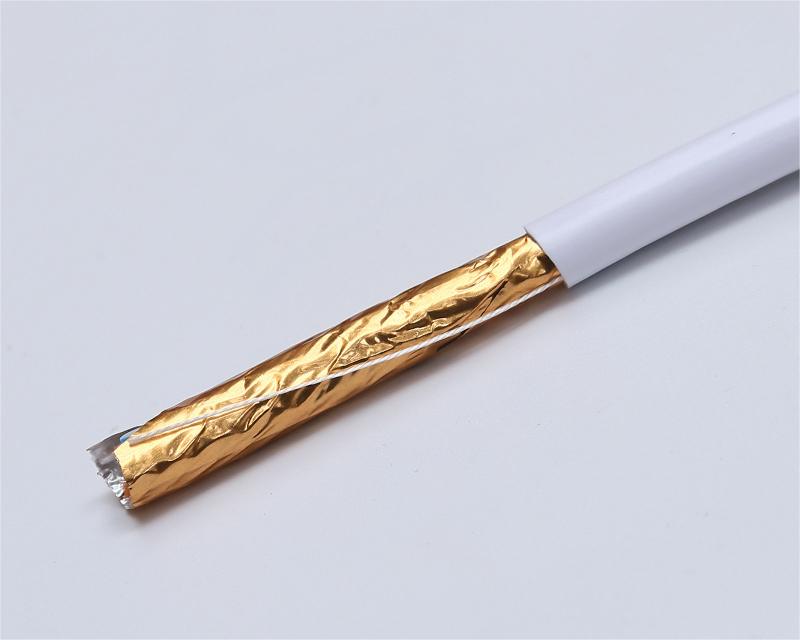
Why is SFTP transfer speed much slower than FTP?
In the digital data transmission domain, understanding the performance differences between SFTP and FTP is crucial, particularly for businesses like CAT6A FTP cable manufacturers that are integral to network infrastructure.
SFTP generally exhibits slower data transfer speeds than FTP. This is primarily due to the additional packet, encryption, and handshaking overhead involved in the SSH2 protocol, complexities that are absent in FTP. FTP is streamlined and efficient, designed with minimal data transfer overhead to facilitate rapid file transfers. Although incorporating encryption into FTP does reduce its speed, the decrease is not as drastic as with SFTP.
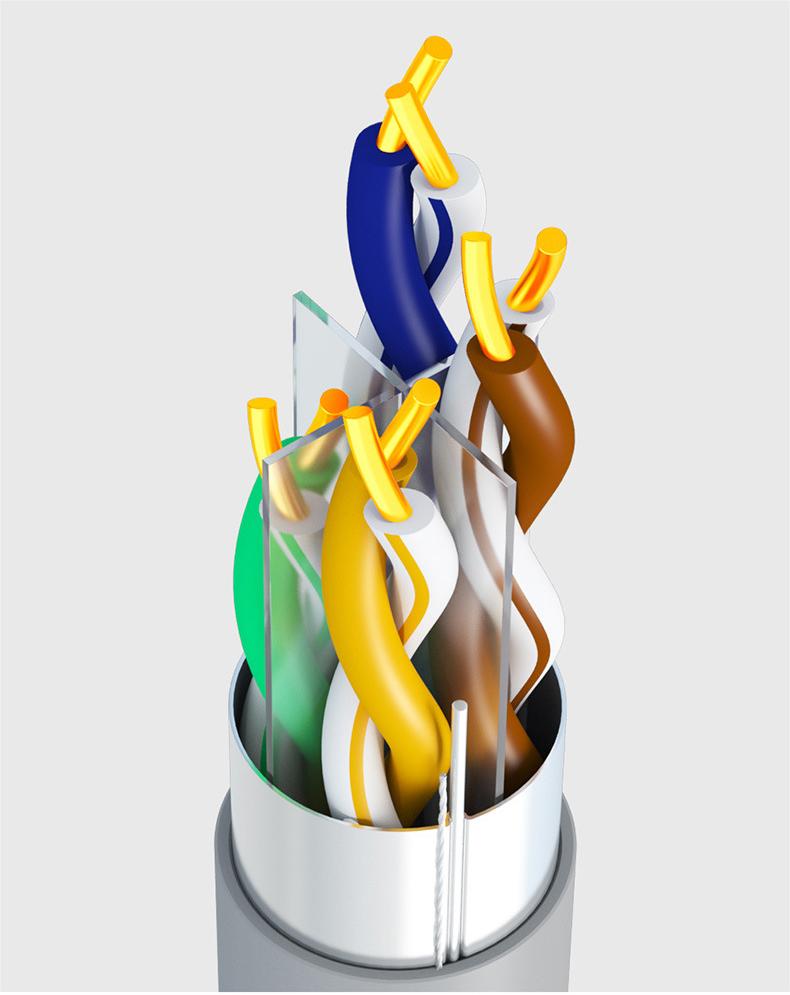
Related Products
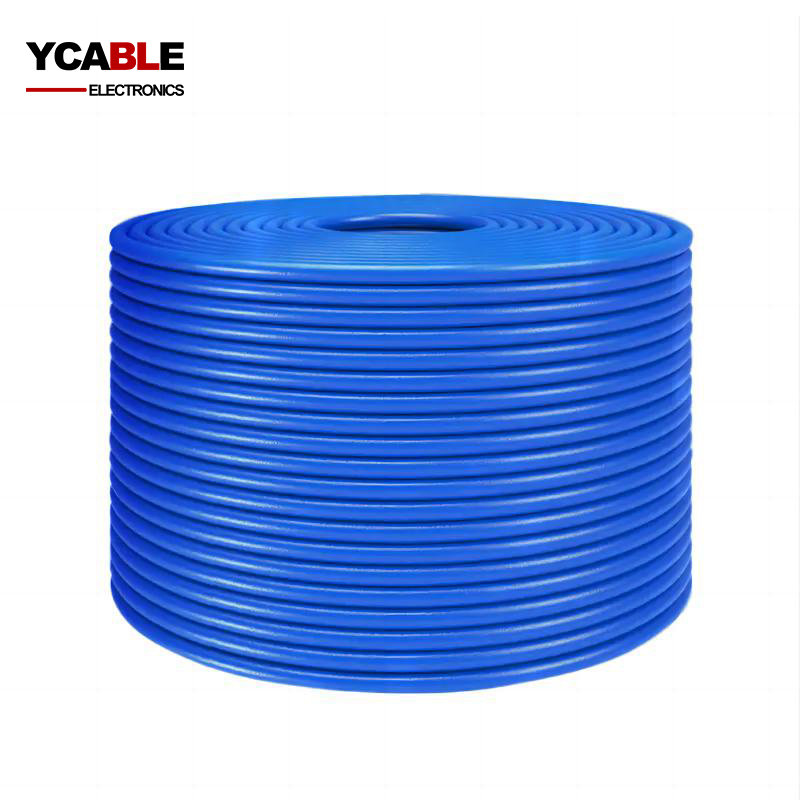
CAT6 wire FTP LAN cable
200FT CAT6 FTP cable shielded ethernet network LAN cable manufacturer in China
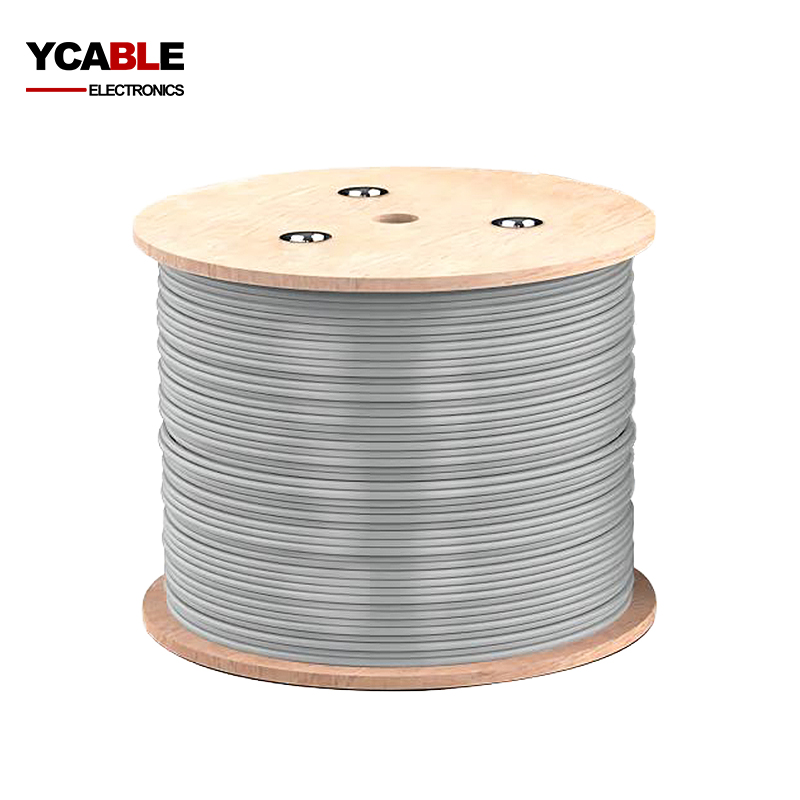
CAT6 wire SFTP LAN cable
1000FT CAT6 SFTP shielded ethernet LAN cable outdoor cable manufacturer in China
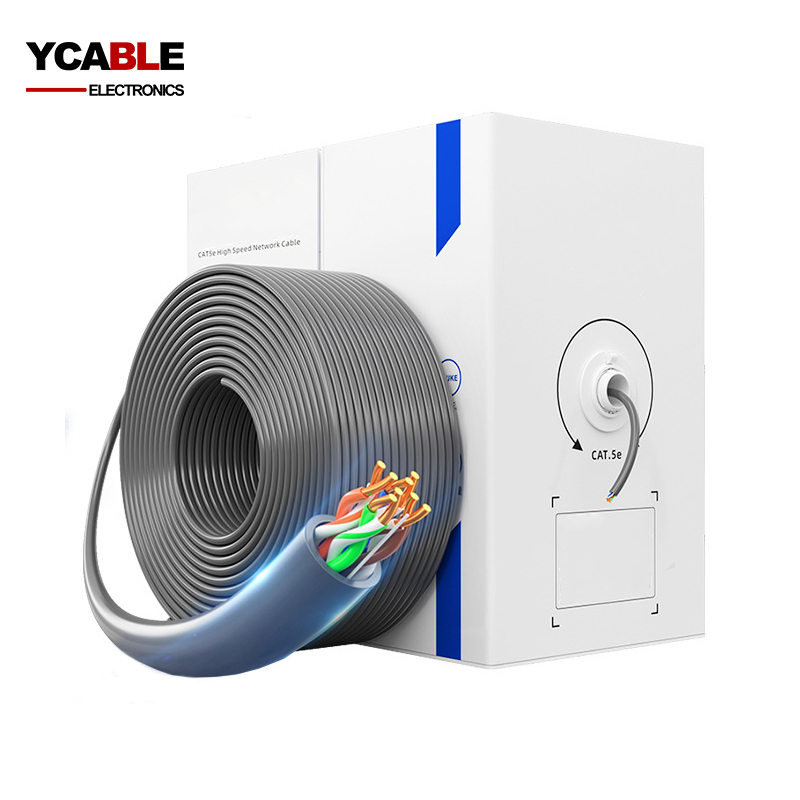
CAT5 CAT5E wire outdoor LAN cable
Outdoor CAT5 Cable 100FT 1000FT Outdoor Rated CAT5E waterproof Ethernet Cable direct ...
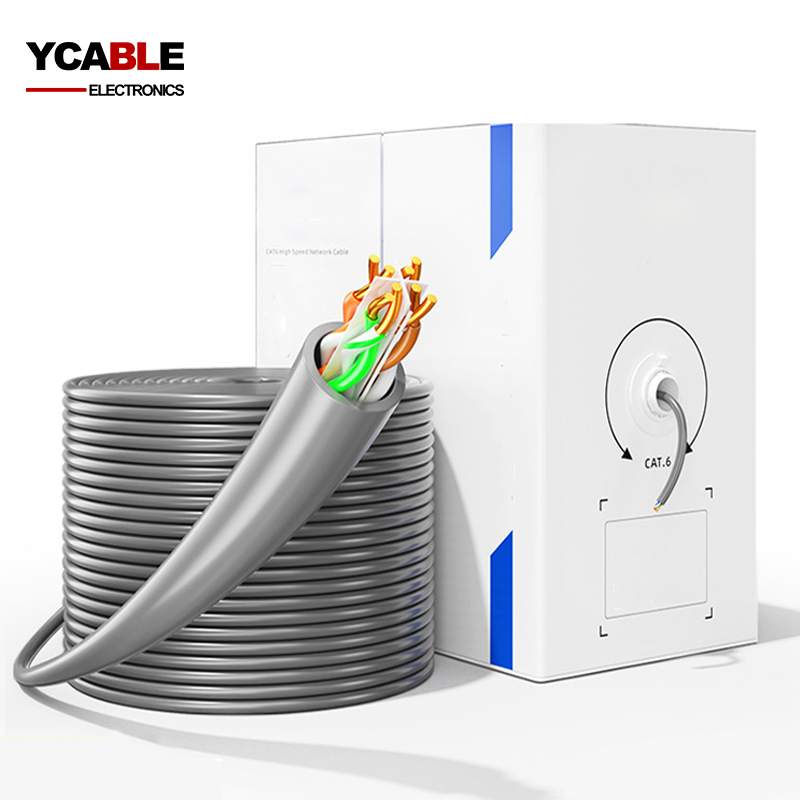
CAT6 CAT6A wire outdoor LAN cable
best 200FT 1000FT Outdoor CAT6 cable rated CAT6A waterproof ethernet cable network ...
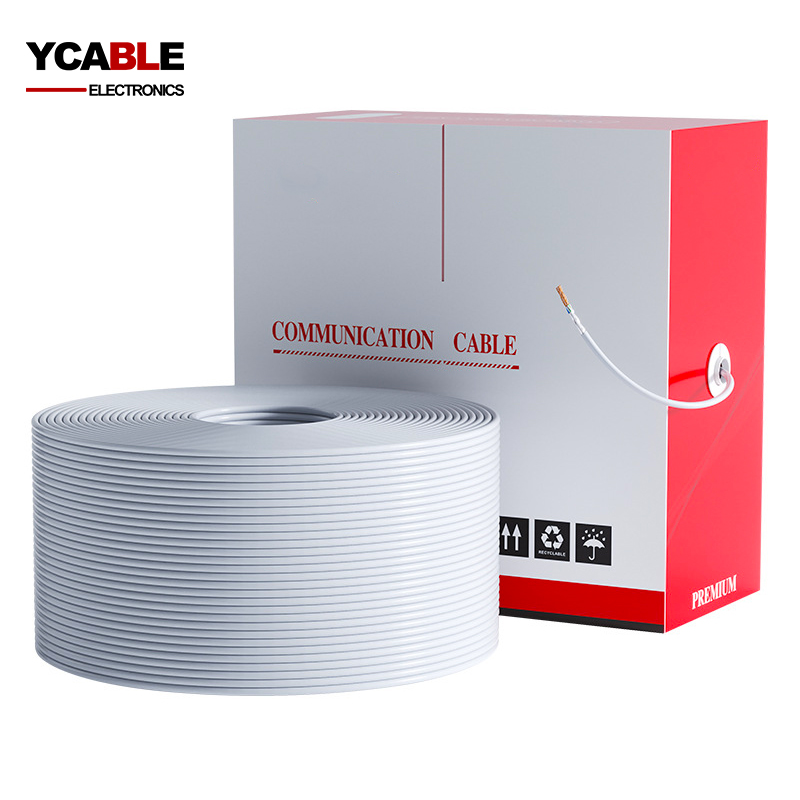
CAT6A wire SFTP LAN cable
1000FT CAT6A SFTP shielded ethernet network cable network cable lan cable manufacturer ...

